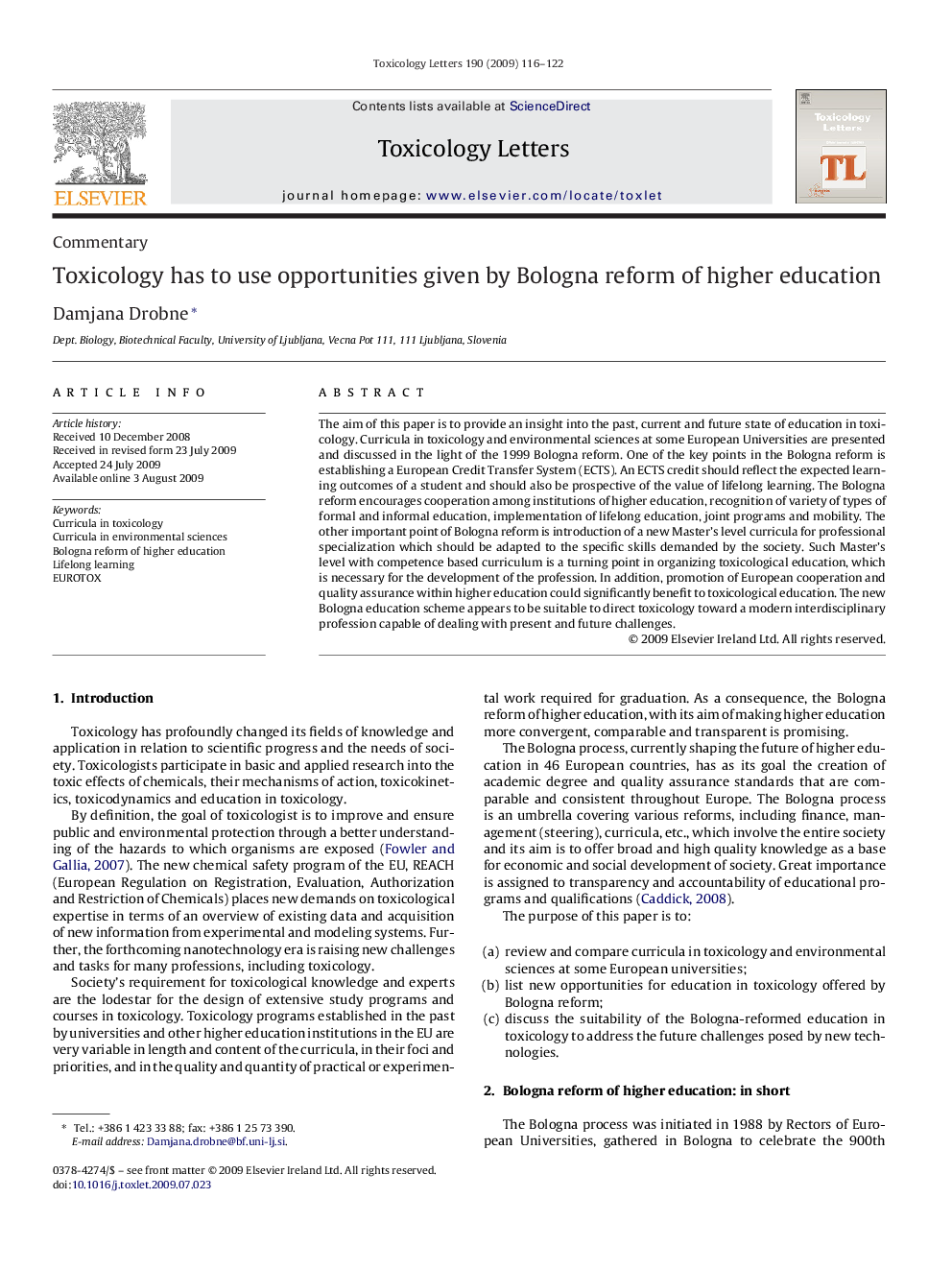| Article ID | Journal | Published Year | Pages | File Type |
|---|---|---|---|---|
| 2601009 | Toxicology Letters | 2009 | 7 Pages |
The aim of this paper is to provide an insight into the past, current and future state of education in toxicology. Curricula in toxicology and environmental sciences at some European Universities are presented and discussed in the light of the 1999 Bologna reform. One of the key points in the Bologna reform is establishing a European Credit Transfer System (ECTS). An ECTS credit should reflect the expected learning outcomes of a student and should also be prospective of the value of lifelong learning. The Bologna reform encourages cooperation among institutions of higher education, recognition of variety of types of formal and informal education, implementation of lifelong education, joint programs and mobility. The other important point of Bologna reform is introduction of a new Master's level curricula for professional specialization which should be adapted to the specific skills demanded by the society. Such Master's level with competence based curriculum is a turning point in organizing toxicological education, which is necessary for the development of the profession. In addition, promotion of European cooperation and quality assurance within higher education could significantly benefit to toxicological education. The new Bologna education scheme appears to be suitable to direct toxicology toward a modern interdisciplinary profession capable of dealing with present and future challenges.
